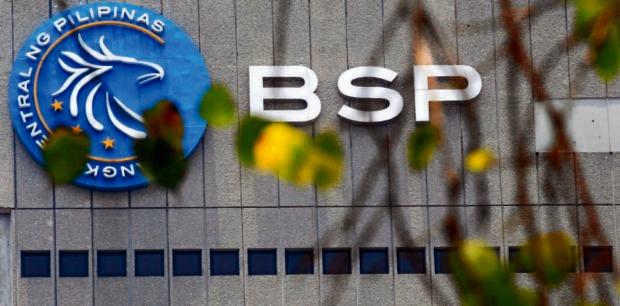BSP keeps policy rate unchanged at 6.5%
MANILA, Philippines — The Bangko Sentral ng Pilipinas (BSP) on Monday kept its key policy rate unchanged at 6.5 percent, extending its pause on rate adjustments while also “contemplating” on an easing move that could happen in the third quarter at the earliest.
At its meeting, the powerful Monetary Board left the target reverse repurchase rate untouched at 6.5 percent, the highest in almost 17 years.
It was a decision that was widely expected by the market after inflation heated up to 3.7 percent year-on-year in March, beating the February reading of 3.4 percent.
While the latest inflation reading managed to stay within the 2 to 4 percent target band of the central bank for the fourth straight month, the figure inched closer to the upper-limit of the range. That said, BSP Governor Eli Remolona Jr. told reporters that “the upside risks mainly have become worse.”
“So that would make us somewhat more hawkish than before,” Remolona said.
READ: BSP in no hurry to change ‘hawkish’ stance
State statisticians said rice, a staple food for Filipino households, was mostly responsible for the faster inflation in March. Data showed rice price gains soared to a 15-year high of 24.4 percent, which the government attributed to stubbornly high global prices of the commodity.
Costlier rice
The costlier rice, in turn, pushed up the overall food inflation to 5.7 percent, the highest since November 2011. That was expected as the staple grain accounts for nearly 9 percent of the CPI basket used to compute inflation.
READ: March inflation higher at 3.7% but still within gov’t target range
While it held its policy rate steady, the BSP upwardly revised its base-line inflation forecast for this year to 3.8 percent, from 3.6 percent previously. The central bank kept its price growth projection for 2025 at 3.2 percent.
Banks use the BSP’s benchmark rate as a guide when charging interest rates on loans. By making borrowing costs more expensive, the BSP wants to temper strong demand for commodities with limited supply. This, in effect, tames inflation.
The last time the BSP delivered an anti-inflation rate hike was during an off-cycle decision in October last year, when the MB lifted the key rate by 25 basis points (bps). Overall, the BSP had raised its policy rate by a total of 450 bps in the current cycle, among the most aggressive in Asia.
READ: BSP delivers off-cycle rate hike as price pressures build up
But despite the overall hawkish tone of the central bank, Remolona nevertheless laid out the two conditions for a potential rate cut in the third quarter: a softer inflation and a weak economic growth.
Further tightening ruled out
“We’re contemplating easing, we’re not contemplating any further tightening,” the BSP chief said.
”If we see some good news with inflation and somewhat weak growth, we could ease by the third quarter. If it’s the opposite, we would ease by the first quarter of 2025. Middle of the range is the fourth quarter of 2024,” he added.
Miguel Chanco, economist at Pantheon Macroeconomics, said inflation would likely peak in April, which may set off 100-bp rate cuts before the end of the year, with the first one possibly in June.
”Headline inflation probably will nudge up further in April, marginally above the 4 percent upper bound of the BSP’s target range. But we reckon that this will be the peak, with food inflation likely to turn a corner, as base effects will turn progressively favorable until the end of Q3, starting in May,” Chanco said.

